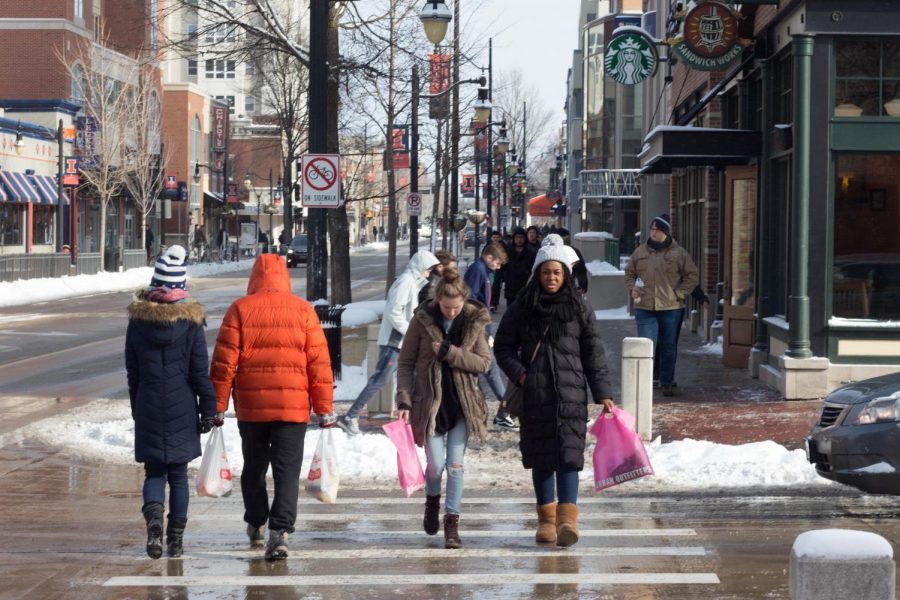Bundle up: University faculty give tips on navigating campus in freezing temperatures
Students walking on Green St. on Jan. 15.
Jan 16, 2018
With students returning to campus and class starting Tuesday, University officials and McKinley Health Center advise faculty and students to take precautions during these last winter months.
Robin Kaler, University spokesperson, said one of the most important things students can do is dress for the weather.
“We live in Illinois, it’s a cold place,” Kaler said. “(The students) know it’s a cold place.”
She also said if a particular day is especially icy or windy, students should try to leave earlier and to cut through buildings or use the bus system to make traveling more doable.
Dr. Robert Parker, director of McKinley Health Center, warns students to be especially careful when going out in cold temperatures and consuming alcohol.
Get The Daily Illini in your inbox!
“Alcohol causes your blood vessels to dilate, so it actually increases the likelihood of getting hypothermia,” Parker said. “So students have to be particularly careful when they are out partying and drinking alcohol, that they really bundle up well.”
Parker said McKinley tends to most commonly see cases of frostbite in students’ toes, fingers and cheeks, which is usually caused by wet clothing.
He encouraged students to see a physician if they start to experience confusion, numbness or discoloration after attempting to warm up, confusion or if they stop shaking as those could be signs of hypothermia.
“It is a problem if (a person’s) shivering actually stops,” Parker said. “Shivering is a way that the body has of warming you up.”
Parker stressed that students should make an effort to stay dry, along with wearing layered clothes and keeping the ears and head covered with a hat or earmuffs.
Parker added, though, most of the cold weather this season has already happened while students have been at home, so they do not expect a large amount of illnesses or injuries relating to the cold temperatures.
Kaler said that when a severe weather event occurs, the University brings together the campus emergency operations committee or a subset of that group.
“(They) discuss things like, ‘Can roads and sidewalks be cleared safely and effectively in time for students and teachers trying to get to classes?’” Kaler said.
She said the maintenance staff stays late nights and weekends to ensure the buildings are warm and dry and that the parking lots and streets are clear for students to walk or to wheel to class.
Individual classes get canceled often for a variety of reasons, but it is rare for the University to cancel all classes for a given day. If they do, though, the chancellor makes that final decision, said Kaler.
Dr. Robert Woodward, a physician at McKinley Health Center, said in an email that class cancelation tends to only be of benefit when it is too dangerous to be driving on the roads due to icy and snowy conditions.
“Students at the U of I are intelligent, resourceful and resilient, so they can adapt quite well to their circumstances to maximize their educational opportunities, no matter what the weather decides to do,” Woodward said.






